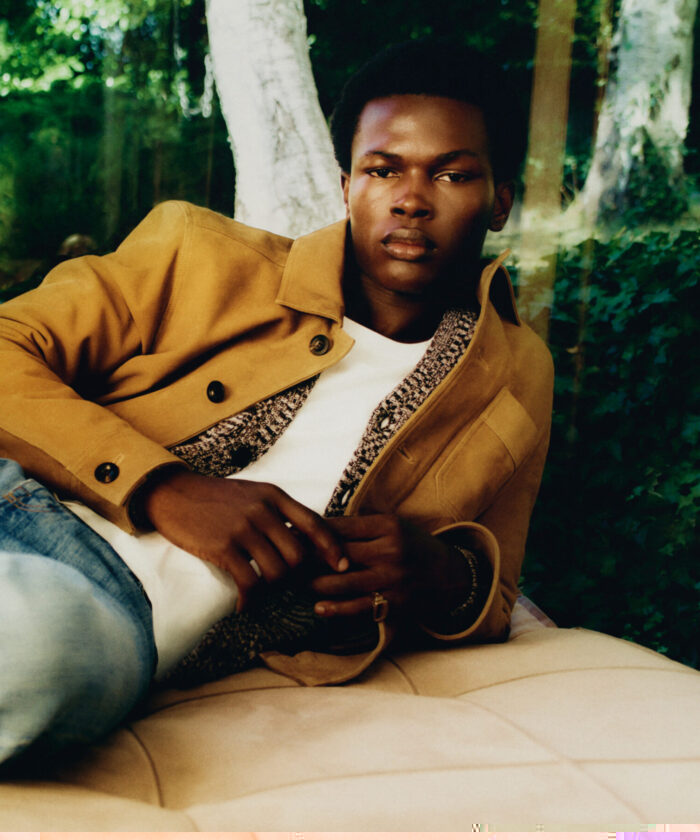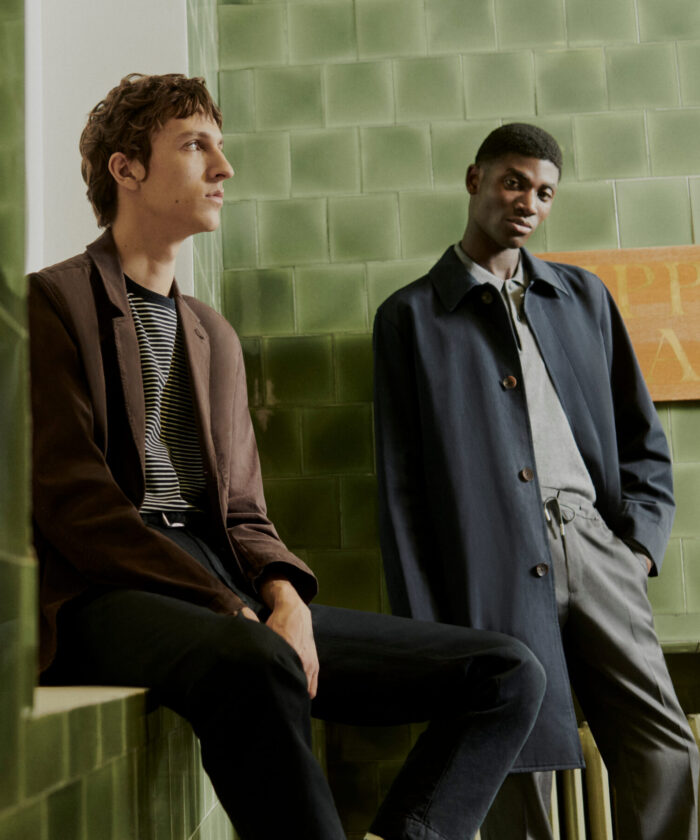Kick-starting a month-long celebration of Pride featuring an array of content, PORTER is delighted to have Pose star INDYA MOORE on the latest cover. The powerhouse non-binary actor and activist has long used their platform to speak out, helping to amplify the voices of LGBTQIA+ communities worldwide. Here, they talk to writer and journalist Kuchenga about the closing chapter of Pose, the indomitable spirit of the Bronx, and why redefining ‘home’ has set them free.
Moore found being part of Pose a deeply personal experience:
I think that our society underplays the level of trauma that trans folks experience as kids… [Pose is] a huge mirror, a reflection for so many of us into our childhood. It was anxiety-inducing in some ways, but it was also really affirming. I think it was cathartic, because reading that script, it was like, ‘Wow, I went through this.’
Moore’s time on the show also helped them to better understand their younger self: “I feel really, deeply connected to my inner child… I don’t know if a lot of our community knows that we get to do that, but I think it’s important to be reminded that we get to be in touch with our inner youth and that place that has been threatened and taken away from us so many times in our lives. Our innocence, our human curiosity, exploring clothing, fashion, toys… These things are so gendered. And, as a result, kids get punished for it and then we’re gaslit and told that we were confused by ourselves, but it’s really the world around us that’s confused.”
After coming out as queer to their family as a teenager, Moore went through periods of homelessness and entered fostercare: “If your understanding of home is rooted in everything that you’ve gone through as a trans person at home, then you start to question life. You know, you grow up in this life believing that you may never have safety or peace or that you are undeserving of home… Like, what do I have to do to access that? Imagining home felt like something that was inaccessible to me. [But] I knew that there would be love, that there is community and that there is support.”
Moore was raised in a Jehovah’s Witness community: “It can be really beautiful. I’m grateful for it in a lot of ways. I think that I came out with particular values and principles, and I feel more privy to care, and I think a lot of that comes from that background. But I also feel socially awkward. I also feel really anxious about the world around me. I also feel super-nervous about impending doom happening any time. And we were raised to believe that [as queer/trans people] we would be destroyed… to enter a life being told that these are the set of feelings that will lead you to your doom. If you feel this in this way, if you wear these clothes, if you want to do you, if you create a lifestyle for yourself that looks like this, you know [that] you don’t have a right to goodness. The older I got, the more autonomous I became over freedom, over my expression. [And] the more safe I felt, the more visible I became in my queerness.”
Moore credits their childhood growing up in the Bronx as fundamental to their indomitable spirit and defiance:
The Bronx is a melting pot. A lot of people from all around the world meet in New York… There’s a lot of survival in the Bronx, and I think it’s a place that has been stigmatized deeply as the less-preferred borough of New York, but [that’s] also idolized as the birthplace of hip-hop.
Moore’s experience of trauma and survival from such a young age has informed the philanthropic work they are commited to today: “These are things that I’ve always cared about. These are things that I put at the forefront of my work always because, before I came into acting and modeling, this was the work that I was interested in already. This is who I was before my art became popular.”
Moore considers Raquel Willis, the Black trans activist and writer, an inspiration: “She’s been really helpful around helping to organize a community [in New York]. I’m so grateful for everything she’s done.”
Moore is adamant about how much they depend on NYC’s Black trans community for intellectual sustenance and emotional support: “We need community; you need people who love you in this life. You need people around who know you. We tend to lose ourselves [in] our survival. And when we have people around us who know us beyond our survival, they can help us to reground when things get really, really hard. I think that was one of my life lessons – that love is important, and then from learning that I understood myself as having the responsibility to love responsibly and to show up for people in the ways that I’ve been shown up for.”
Moore reflects on what they are hoping for in the next chapter of their life: “I just want a life of happiness and peace. I love my community. I want us to have what we need. I want us to have access to healthcare, security and shelter and love. Opening up those channels for my people is really important to me. That’s where I’m at.”
For PORTER’s shoot, Indya Moore was photographed by Camila Falquez and styled by Sean Knight, wearing Loewe, Petar Petrov, Magda Butrym, Norma Kamali, Calle Del Mar and more. All items can be purchased straight from the shoot via the NET-A-PORTER app, available on Android as well as iPhone and iPad, and through net-a-porter.com.




